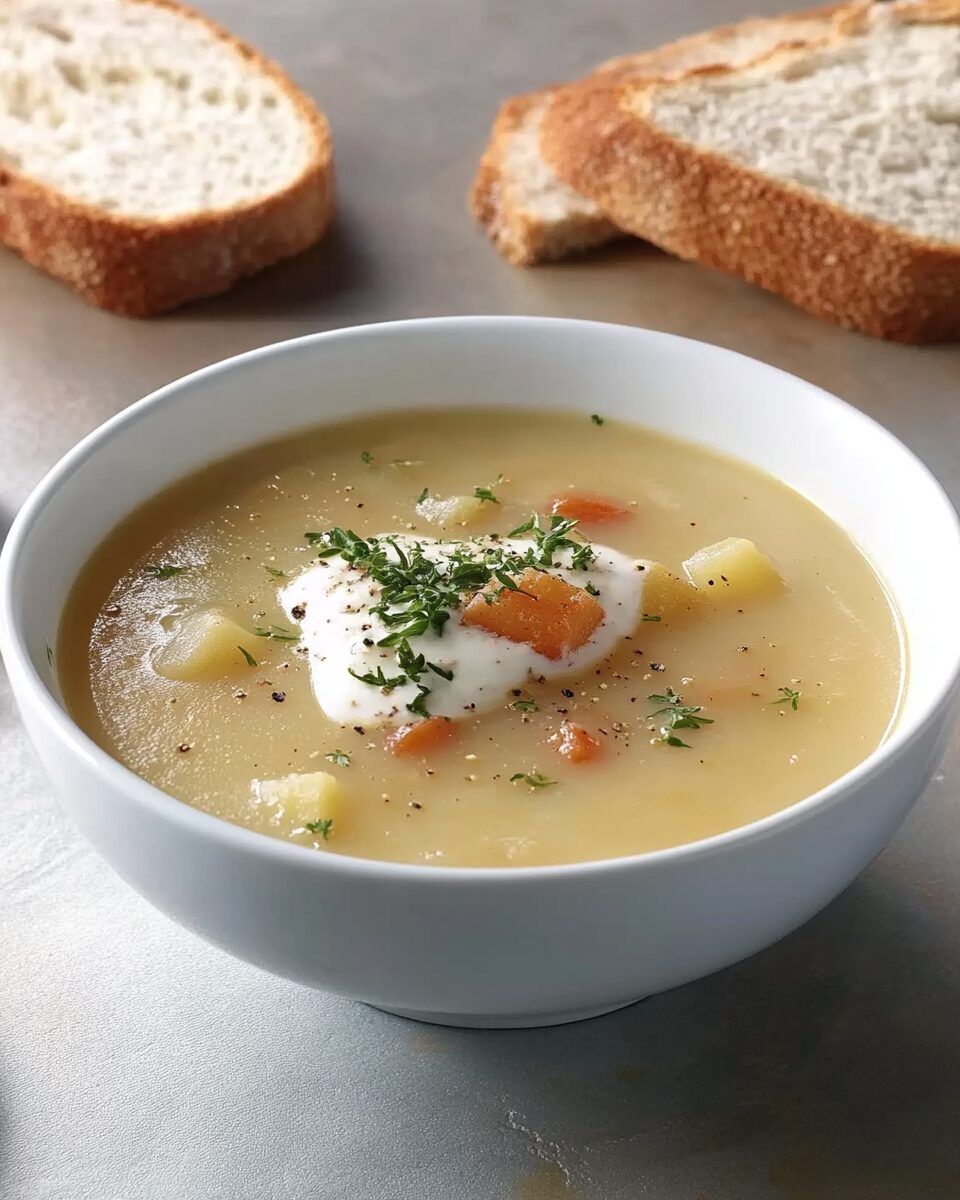Historical Origins
The story of potato soup in Poland is intertwined with the history of the potato itself. Introduced to Europe in the late 1500s, potatoes quickly became a staple food due to their versatility and ability to thrive in various climates. In Poland, potatoes became a key ingredient in many dishes, especially among rural communities where they provided sustenance during harsh winters.
The soup evolved as a practical solution for utilizing leftover vegetables and potatoes, making it a staple in Polish households. Traditionally, it was a way to stretch ingredients and feed large families, showcasing the resourcefulness of home cooks. The simplicity of the recipe reflects the culinary wisdom passed down through generations.
Cultural Significance
Food plays a central role in Polish culture, often acting as a medium for expressing love and care. Meals are typically communal, bringing families and friends together to share stories and create memories. Polish potato soup is a dish that is frequently served at family gatherings, holidays, and festive occasions.
During festive times, such as Christmas Eve, soups often hold a place of honor on the table. While traditional recipes may vary, the act of sharing a warm bowl of soup reflects the hospitality and warmth inherent in Polish culture. The soup is more than just a meal; it symbolizes togetherness and the joy of sharing.
Flavor Profile
The flavor of Polish potato soup is rich and comforting, with a creamy base that highlights the natural sweetness of the potatoes. The dish typically includes onions, garlic, and carrots, which contribute to its aromatic profile. While the classic version is beloved for its straightforward flavors, variations exist that enhance its complexity.
For instance, some families incorporate smoked meats like bacon or kielbasa, adding depth and a savory richness to the soup. Herbs such as dill and parsley are often used as garnishes, providing a fresh contrast to the creamy texture. This adaptability allows cooks to personalize the soup according to seasonal ingredients and family preferences.
Regional Variations
Poland’s diverse culinary landscape has led to various regional interpretations of potato soup. In some regions, chefs may add sauerkraut for a tangy twist, while others might include root vegetables like parsnips or turnips for added flavor. The choice of broth—be it vegetable or meat-based—can also vary, influencing the overall taste of the soup.
Additionally, the thickness of the soup can be adjusted to suit personal preference. Some may enjoy a chunky, hearty version, while others might prefer a smoother, more refined texture achieved by blending part of the soup.
Health Benefits
Beyond its comforting taste, Polish potato soup offers several health benefits. Potatoes are a good source of vitamins C and B6, potassium, and dietary fiber, making them a nutritious addition to a balanced diet. When combined with other vegetables, the soup becomes a well-rounded meal that supports overall health.
The use of fresh herbs not only enhances flavor but also provides additional nutrients and antioxidants. Moreover, the dish can be easily modified to accommodate various dietary needs, making it a versatile option for many.
Contemporary Interpretations
As culinary trends evolve, so does the classic Polish potato soup. Modern chefs and home cooks are experimenting with the traditional recipe, introducing new ingredients and techniques. For instance, some have embraced plant-based diets, creating vegan versions that replace cream with alternatives like coconut milk or cashew cream.
Innovative approaches may also include the use of spices such as smoked paprika or cumin, adding an unexpected twist to the familiar flavors. These contemporary adaptations not only honor the traditional dish but also cater to a wider audience with diverse tastes.
Conclusion
Polish potato soup is more than just a dish; it is a celebration of heritage, community, and the joy of cooking. Its humble ingredients and comforting flavors tell a story of resilience and resourcefulness, reflecting the essence of Polish culture. Whether served at a family gathering or enjoyed on a chilly evening, this soup continues to warm hearts and bring people together.
As you explore this timeless recipe, remember that it is not just about following instructions but also about embracing the traditions and memories associated with each bowl. Polish potato soup serves as a reminder of the power of food to nourish not just the body, but also the soul, connecting us to our roots and to one another.

